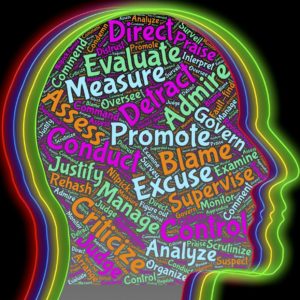As we begin a new year, it might be wise to define some of the most common terms we use here at the Emotional Intelligence Blog. After all, while we are intimately familiar with them, it occurs to us that the same may not be true for you, our audience. This is fairly common among experts in any field, who tend to forget that the most basic principles with which they work may not be common knowledge. Understanding basic concepts, such as what is an EQ, has real value as a building block to grasping the principles and application of emotional intelligence in the workplace (for example), or in your personal life.
What is Emotional Quotient
Your emotional quotient, also known as EQ, is a measurement of your level of emotional intelligence; much like IQ is a measurement of your intelligence quotient. However, unlike IQ (which is largely fixed over your lifetime), EQ is malleable; that is, capable of being shaped and/or grown and improved.
This is very good news since, according to PsychCentral.com, “… each one of us must develop the mature emotional intelligence skills required to better understand, empathize and negotiate with other people – particularly as the economy has become more global. Otherwise, success will elude us in our lives and careers.”
At its most fundamental level, your EQ is a measure of your ability to understand others, including: their motivations and how you can best work with them. Of course, this also implies that you have the ability to understand yourself, including: your own emotions and motivations, as well as the need to work with others and build positive relationships.
According to most experts in the field, the key skills for building your EQ and improving your ability to manage emotions and connect with others are:
- Self-management
- Self-awareness
- Social awareness
- Relationship management
The good news is that the skills that make up emotional intelligence can be learned at any time. However, it’s important to remember that there is a difference between simply learning about EQ and applying that knowledge to your life.
EQ-i 2.0 Model of Emotional Intelligence
With that basic understanding of EQ, a more contemporary, evidenced-based model has emerged, known as the EQ-i 2.0 model of emotional intelligence. Expanding on the earlier concept of EI, the EQ-i 2.0 model reaches deeper and offers a more comprehensive understanding of emotional intelligence, as well as the potential for using emotional intelligence in the workplace.
SELF-PERCEPTION
- Self-Regard is respecting oneself while understanding and accepting one’s strengths and weaknesses. Self-Regard is often associated with feelings of inner strength and self-confidence.
- Self-Actualization is the willingness to persistently try to improve oneself and engage in the pursuit of personally relevant and meaningful objectives that lead to a rich and enjoyable life.
- Emotional Self-Awareness includes recognizing and understanding one’s own emotions. This includes the ability to differentiate between subtleties in one’s own emotions while understanding the cause of these emotions and the impact they have on one’s own thoughts and actions and those of others.
SELF-EXPRESSION
- Emotional Expression is openly expressing one’s feelings verbally and non-verbally.
- Assertiveness involves communicating feelings, beliefs and thoughts openly, and defending personal rights and values in a socially acceptable, non-offensive, and non-destructive manner.
- Independence is the ability to be self-directed and free from emotional dependency on others. Decision-making, planning, and daily tasks are completed autonomously.
INTERPERSONAL
- Interpersonal Relationships refers to the skill of developing and maintaining mutually satisfying relationships that are characterized by trust and compassion.
- Empathy is recognizing, understanding, and appreciating how other people feel. Empathy involves being able to articulate your understanding of another’s perspective and behaving in a way that respects others’ feelings.
- Social Responsibility is willingly contributing to society, to one’s social groups, and generally to the welfare of others. Social Responsibility involves acting responsibly, having social consciousness, and showing concern for the greater community.
STRESS MANAGEMENT
- Flexibility is adapting emotions, thoughts and behaviors to unfamiliar, unpredictable, and dynamic circumstances or ideas.
- Stress Tolerance involves coping with stressful or difficult situations and believing that one can manage or influence situations in a positive manner.
- Optimism is an indicator of one’s positive attitude and outlook on life. It involves remaining hopeful and resilient, despite occasional setbacks.
DECISION MAKING
- Problem Solving is the ability to find solutions to problems in situations where emotions are involved. Problem solving includes the ability to understand how emotions impact decision making.
- Reality Testing is the capacity to remain objective by seeing things as they really are. This capacity involves recognizing when emotions or personal bias can cause one to be less objective.
- Impulse Control is the ability to resist or delay an impulse, drive or temptation to act and involves avoiding rash behaviors and decision making.
Developing your EQ can greatly influence your level of success – personally and professionally. While your personal situation and intelligence are also factors, EQ can profoundly affect the choices you make by creating options you may not have otherwise imagined or considered to be possible.
Click here to find out why the Forbes Coaches Council ranks the EQ-i 2.0 Emotional Intelligence Assessment as one of the best assessment tests they recommend to their clients and why they are important.
If you would you like to find the help you need to improve your leadership skills, through the enhanced use of emotional intelligence in the workplace and development of your EQ, let’s chat. Click here to schedule your FREE Discovery Call.
